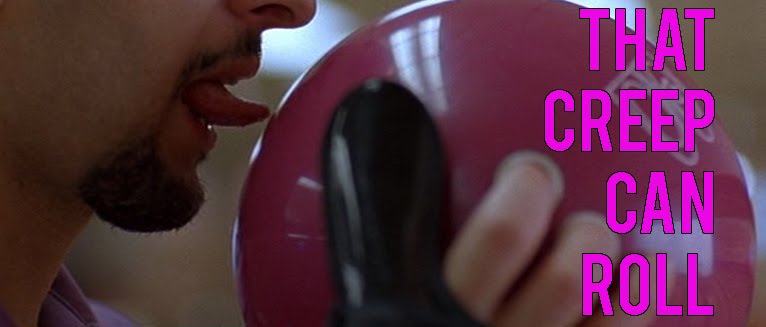

Precious (Based On The Novel ‘Push’ By Sapphire)
A hard-hitting abuse drama, starring Mariah Carey. That’s not a summation that inspires confidence. It comes with preconceived ideas and expectations of an insipid ‘inspirational’ struggle against the odds. However, it’s garnering plaudits aplenty so I figured the majority can’t be that far wrong. They weren’t. Precious (to use its colloquial title) is a very fine piece of work indeed.
The home-life of Claireece Precious Jones is pretty harrowing; twice pregnant to her father, emotionally and physically abusive mother, impoverished. Add to that the fact she’s severely overweight, illiterate and bullied. Prospects don’t look good. That’s where the film wrong-foots you, it’s not necessarily about overcoming adversity and the plight of this poor girl. It’s about an ordinary girl in extraordinary circumstances, enduring supreme hardship. It’s not constantly trying to ram a message down your throat. The fact that there are probably numerous Preciouses out there isn’t a cause for a crusade. As an audience, we’re not being held accountable.
Precious herself is not a character who requires our pity. Sure, she’s got a pretty awful life but she’s choosing to do the best she can to get herself out of that. It may not present her as happy with her lot but it never presents her as lacking in spirit and prone to conceding defeat. In that way, she is inspirational. The performance of newcomer Gabourey Sidibe is at once naturalistic and utterly compelling. The scenes of her bonding with new classmates seem entirely legitimate with a sense of authenticity lacking in other films which tread the same ground.
Although inevitably erring towards it at times, the film tries its utmost to avoid the clichés which plague the genre. The music is never downbeat even as misery upon misery is heaped on. Even the bleakest scene is underscored by the most uplifting (often gospel) music. It’s decidedly low-key and avoids becoming too overblown. The scenes of abuse never become ‘misery porn’ and the flights of fancy which take place in Precious’ mind when faced with extreme hardship have the opposite effect, merely foregrounding the juxtaposition of dreamworld idyll and harsh reality.
Director Lee Daniels has a keen eye and every scene is imbued with interesting visuals and kinetic cinematography – but never to the detriment of story or character development. Mo’Nique is the most pantomime of the characters as Precious’ vile mother, although later scenes reveal a depth that wasn’t seen in the earlier acts. The appearances of Mariah Carey and cock-rocker Lenny Kravitz, while momentarily distracting, are not ostentatious and ol’ leather trousers actually provides one of the films only true moments of levity. It’s not entirely without shards of light among the murk. It takes a brave film to present such uncompromising hardship yet still have the time (and audacity) to include a throwaway scene making light of Precious’ malapropian misnaming of ‘incest’, without appearing tasteless.
At times more horrific than many horror films, it’s not a film which offers easy answers or easy solutions – which wasn’t what I expected from it. At all.
(High) 4/5
Bad Lieutenant
Put the controversy to one side which, from today’s perspective, is pretty inconsequential anyway. For anyone unfamiliar, this is a character study. Harvey Keitel is the unnamed dirty cop of the title, but his dirtiness goes far beyond typical depictions of police corruption; he smokes crack, commits sex crimes, gambles, boozes hard, extorts money and pilfers cocaine from crime scenes. As if that weren’t enough he couldn’t care less about his role as a protector of society. He’d rather discuss sports fixtures than investigate a double murder and is entirely happy with letting criminals go free if it meets his own needs.
It’s a virtuoso performance from Keitel, from his pained primal yelps to his narcotic-induced stupor. Never afraid to take it to extremes and, even for an actor previously uninhibited in this area, is unafraid of airing of his old fella when it’s needed. The depictions of his drug-addled haze are well-realised and inventive each and every time they regularly appear. The film never departs from the central character for more than a few seconds and the camera is unwavering as it focuses on Keitel. Long static shots add to the sense of discomfort as he goes about his routine. Even the contrasting scenes of his family life have a pervading sense of menace which could erupt at any time.
For all cop films, as irregular as this or otherwise, there’s a central crime which the film is hung around. Here, co-writer/director Abel Ferrara almost childishly chooses the most provocative crime in a deliberate attempt to foreground the film’s controversial nature; the rape of a young nun. The religious complexion of this crime allows the film to introduce themes of redemption and a constant ramming of ecclesiastical iconography, which is overplayed, but then the entire film is caricatured to the point of excess. Despite never appearing to tacitly chastise the character and his actions, there’s only really one possible outcome for the Lieutenant and even an epiphany may not be enough to prevent it.
Ferrara’s direction is visually wondrous with particularly extravagant lighting and a measured, precise movement that allows the film room to breathe. With no score to speak of this combines with, and adds to, the level of unease the film creates. There’s a baseball subplot which runs through it, with sports commentary occasionally replacing music cues as a by-proxy means of manipulation.
Despite a few leery scenes, it’s not quite the controversy magnet it’s made out to be (highlighted by the fact it’s now an unlikely franchise). Abel Ferrara’s excessive manner at the least ensures that it’s creatively uncompromised with a distinct arthouse sensibility that’s liable to disappoint anyone looking for a laddish thrill-ride.
4/5


No comments:
Post a Comment